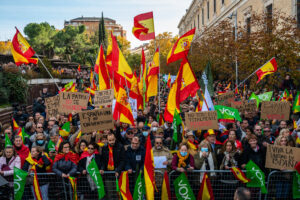

January 2025, Volume 36, Issue 1
Why the World Is Down on Democracy
Citizens across the globe still value democracy, but they have become dissatisfied with the way it is working. A new era of representation is in order — one featuring more diverse leaders, responsive politicians, and empowered publics.





